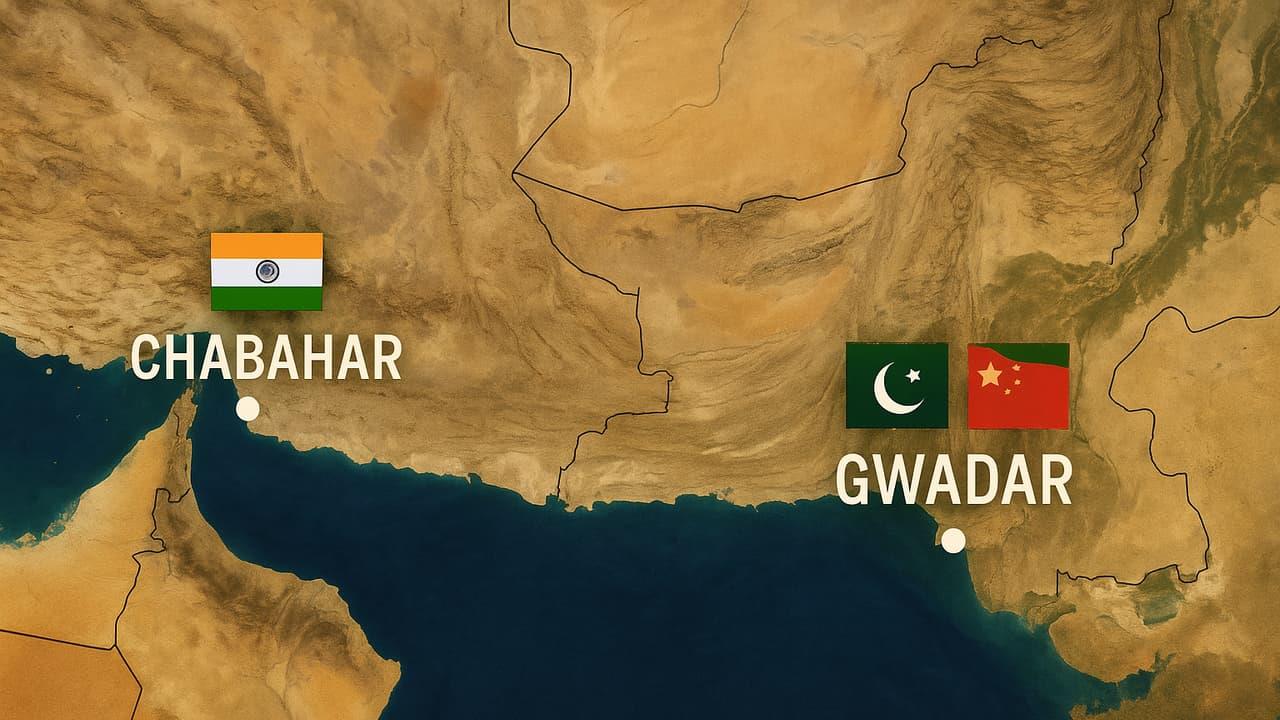
How U.S. Waiver, Taliban Outreach, & Pakistan Tensions Complicate India's Kabul Trade Corridor Strategy
India's trade corridor to Afghanistan through Iran's Chabahar Port remains under strain, despite Washington granting New Delhi a six‐month extension to its sanctions waiver. The waiver, issued under the Iran Freedom and Counter‐Proliferation Act, allows India to continue operating at Chabahar without attracting secondary U.S. sanctions.
The announcement on October 30 came as India renewed efforts to strengthen connectivity with Afghanistan. Earlier in May 2024, Indian Ports Global Limited signed a 10‐year agreement with Iran's Ports and Maritime Organization, committing $120 million to operate the Shahid Beheshti Terminal. The deal highlighted India's long‐term interest in the port but drew caution from the outgoing Biden administration, which warned against deepening commercial ties with Tehran.
Successive U.S. administrations have acknowledged Chabahar's strategic importance, granting India limited operational flexibility despite broader sanctions on Iran. For New Delhi, the waiver is vital to sustain access to Afghanistan through a corridor that bypasses Pakistan. The timing is significant, as India cautiously expands engagement with the Taliban‐led government while Islamabad's relations with Kabul deteriorate.
Pakistan has accused the Taliban of sheltering the Tehreek‐e‐Taliban Pakistan (TTP), a claim Kabul rejects. Against this backdrop, Afghanistan's acting foreign minister Amir Khan Muttaqi visited India in October, during which New Delhi announced plans to upgrade its technical mission in Kabul into a full embassy. While India remains cautious about formal recognition, the move reflects pragmatic acceptance of Afghanistan's political realities.
India's Shift From Aid To Trade And Connectivity Projects
India's outreach now emphasizes infrastructure and connectivity. Projects include a Thalassemia Center, a modern diagnostic facility, heating systems at Kabul's Indira Gandhi Institute of Child Health, the India‐Afghanistan Air Freight Corridor, and maintenance of the Salma Dam. These initiatives highlight a shift from humanitarian aid toward trade and regional integration.
Trade has become central since J.P. Singh's delegation visit to Taliban‐ruled Afghanistan in November 2024. India has encouraged Kabul to rely on Chabahar amid worsening ties with Pakistan. Afghan exports through Karachi and Gwadar have been disrupted by new Pakistani taxes and duties, causing delays and losses for traders. Container flows via Karachi dropped from nearly 3,000 to about 800 per month by August 2024.
India's exports to Afghanistan fell sharply after the Taliban takeover in 2021, dropping from $662 million to $362 million by 2023, before stabilizing at $333 million in 2024. Border closures between Iran and Afghanistan further disrupted trade. Meanwhile, the Taliban explored joining China's Belt and Road Initiative via CPEC, though tensions with Pakistan slowed progress.
China continues lobbying for Afghanistan's integration with Gwadar and CPEC. In May 2025, Beijing hosted trilateral talks with Afghan and Pakistani officials, aiming to extend CPEC into Afghanistan. Kabul, however, remains hesitant, citing repeated Pakistani military violations of Afghan sovereignty and airspace.
Iran's Push To Expand Chabahar And Regional Freight Links
Iran has seized the opportunity to strengthen ties. In September 2025, Industry Minister Seyed Mohammad Atabak led a delegation to Kabul, proposing expanded Afghan use of Chabahar and boosting freight capacity on the Khaf–Herat railway. Talks also focused on operational tweaks to handle more vessels and streamline port calls.
The Delaram–Zaranj highway and Milak crossing, built with Indian assistance, remain vital links but vulnerable to closures, as seen during clashes over Helmand River water rights in 2023. The crossing reopened in October 2025 following the Iranian delegation's visit.
Inside Iran, freight moves south from Milak through Zabol, Zahedan, Khash, and Iranshahr to Chabahar. India's plan to build the Chabahar–Zahedan railway stalled in 2020, though Iran has advanced construction to 80 percent. Tehran has indicated openness to Indian participation through equipment supply, leaving the door open for India's involvement.
The uncertain future of India's Kabul route reflects a complex mix of sanctions, Taliban politics, and regional rivalries. While the waiver provides temporary relief, long‐term stability will depend on how New Delhi navigates ties with Tehran, Kabul, and Islamabad.
Legal Disclaimer:
MENAFN provides the
information “as is” without warranty of any kind. We do not accept
any responsibility or liability for the accuracy, content, images,
videos, licenses, completeness, legality, or reliability of the information
contained in this article. If you have any complaints or copyright
issues related to this article, kindly contact the provider above.


















Comments
No comment